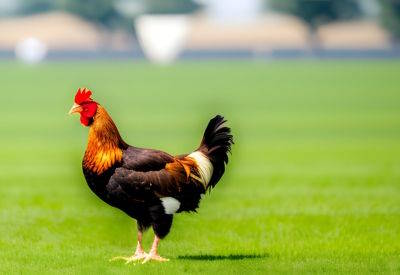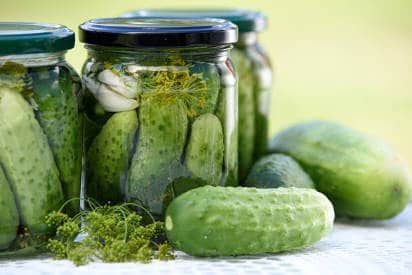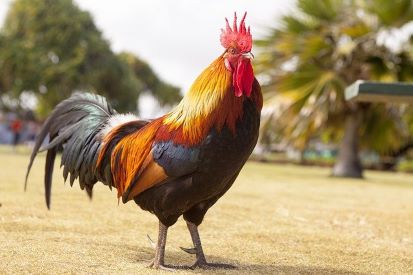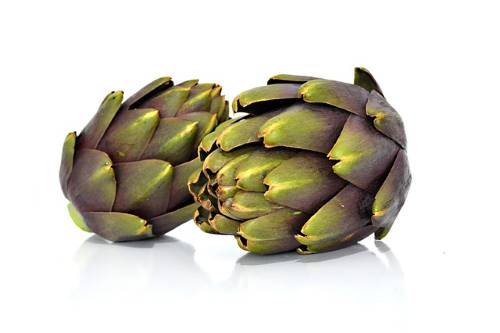As a fellow chicken owner, you might be curious about the treats you can provide your feathered friends. It’s always fun to experiment with various snacks to find out what your chickens enjoy the most, and one question that may have crossed your mind is: can chickens eat pickles? It may seem like an odd choice, but the answer might surprise you.
Pickles, those tangy, sour, and sometimes sweet snacks that many humans love, are made from cucumbers preserved in a vinegar solution. While they may not be the first thing that comes to mind when thinking about chicken treats, they do possess some qualities that could make them an interesting addition to your chickens’ diet.
In this article, we’ll discuss whether chickens can eat pickles, the benefits they might gain from consuming them, and important considerations for feeding pickles to your flock. We’ll also cover how often you should offer pickles to your chickens and how to prepare them properly. Let’s dive into the world of pickles and chickens!

Can chickens eat pickles?
You may be wondering, can chickens eat pickles? The answer is yes, but with some considerations. Chickens can eat pickles in moderation as an occasional treat. Pickles, which are essentially cucumbers preserved in a vinegar solution, contain some nutrients that can benefit chickens. However, the high salt content in pickles can harm chickens if consumed in large amounts.
One reason chickens might enjoy pickles is the sour, tangy taste of the vinegar. Chickens are known to enjoy a variety of flavors, and the unique taste of pickles can be a welcome change from their regular feed. When giving pickles to your chickens, opt for those with no added sugar, as this can be unhealthy.
Additionally, it’s essential to remember that pickles should not be a primary source of nutrition for your chickens. They should only be offered as a treat or supplement to their regular diet. Pickles lack the essential nutrients, such as proteins and minerals, that chickens need to thrive.
[ChickenAffiliate]
The benefits of eating pickles for chickens
While pickles might not be a nutrition powerhouse, they still benefit chickens when fed in moderation.
Hydration
Pickles have a high water content, which can help keep your chickens hydrated, especially during hot weather.
Vitamins and minerals
Cucumbers, the primary ingredient in pickles, contain vitamins and minerals such as Vitamin K and potassium, which can benefit your chickens’ health.
Probiotics
The fermentation process used to create pickles can introduce beneficial bacteria or probiotics, supporting your chickens’ gut health.
Low calorie
Pickles are a low-calorie treat option that can help maintain your chickens’ healthy weight.
Variety and enrichment
Offering pickles to your chickens provides variety in their diet and serves as an enrichment activity, keeping them engaged and entertained.
Things to watch out for when feeding pickles to chickens

There are a few things to be cautious of when offering pickles to your chickens.
Salt content
Pickles can be high in sodium, harming chickens if consumed in large amounts. Always opt for low-sodium varieties or rinse the pickles before feeding them to your chickens.
Artificial additives
Some pickles may contain artificial colors, flavors, or preservatives, which may not be suitable for chickens. Always check the ingredients list and choose pickles with natural ingredients.
Choking hazard
Large pickle pieces can pose a choking hazard to chickens. Make sure to cut pickles into small, manageable pieces before feeding them to your flock.
How often should chickens eat pickles?
As mentioned earlier, pickles should only be offered as an occasional treat, given their high sodium content and lack of essential nutrients. You can offer pickles to your chickens once or twice a week, depending on the size of your flock and the number of treats you provide.
Treats should not exceed 10% of your chickens’ diet. Most of their nutritional needs should come from well-formulated poultry feed and access to fresh water and grit.
How to prepare pickles for feeding to chickens

If you decide to offer pickles to your chickens, follow these steps to ensure they’re suitable for consumption.
- Choose the right pickles: Opt for natural, low-sodium pickles with no added sugar or artificial additives.
- Rinse off the brine: To reduce sodium, rinse the pickles under running water before cutting them up.
- Cut into small pieces: Chop the pickles into small, bite-sized pieces to minimize the risk of choking.
- Offer in moderation: Serve a small number of pickles to your chickens, making sure not to overdo it. Treats should make up no more than 10% of their diet.
- Mix with other healthy treats: You can combine pickles with other healthy treats, such as fruits and vegetables, to provide a more balanced and varied snack for your chickens.
- Monitor for adverse reactions: Keep an eye on your chickens after introducing pickles to their diet. If you notice any signs of digestive upset or other health issues, discontinue feeding pickles and consult a veterinarian.
Can baby chicks eat pickles?
While adult chickens can enjoy pickles as an occasional treat, it’s best to avoid feeding pickles to baby chicks. Baby chicks have different nutritional needs compared to adult chickens, and their digestive systems may not be able to handle the high sodium content and acidity found in pickles.
Instead, provide baby chicks with a high-quality, age-appropriate feed to ensure they receive the essential nutrients they need for proper growth and development. Once your chicks are fully grown and have transitioned to adult chicken feed, you can consider introducing pickles and other treats in moderation.
What other vegetables can chickens eat?

While pickles can be an interesting treat for your chickens, offering them a variety of vegetables is essential to maintain a well-rounded and healthy diet. Diversifying their treat options helps provide them with a range of nutrients and keeps them engaged and happy. Here are five other vegetables that your chickens can enjoy, each with its own unique benefits.
Okra
Okra is a great vegetable option for your chickens, as it’s high in fiber, vitamins, and minerals. These nutrients can contribute to your chickens’ overall health and wellbeing. Additionally, okra’s slimy texture can be a fun, engaging treat for your chickens to peck at and enjoy.
Read More: Can Chickens Eat Okra? 5 Important Benefits
Eggplant
Eggplant is another excellent vegetable choice for chickens. It’s rich in vitamins, minerals, and antioxidants that can help support their immune system. However, ensure to only feed your chickens cooked eggplant, as raw eggplant contains solanine, which can harm them. Cooking the eggplant neutralizes the solanine, making it safe for your flock to consume.
Read More: Can Chickens Eat Eggplant? 5 Amazing Benefits
Corn on the cob
Corn on the cob is a delicious treat for humans and a favorite among chickens. It provides them with energy through its high carbohydrate content and essential nutrients like vitamins and minerals. Feeding your chickens corn on the cob can also be an engaging and entertaining activity, as they’ll love pecking at the kernels.
Read More: Can Chickens Eat Corn On The Cob? 5 Excellent Benefits
Artichokes
Artichokes are another nutrient-dense vegetable that your chickens can enjoy. They are packed with vitamins, minerals, and antioxidants, which can help support your chickens’ overall health. Additionally, artichokes can be a fun and challenging treat, as your chickens must peck through the tough outer leaves to reach the tender heart.
Read More: Can Chickens Eat Artichokes? 5 Important Benefits
Yams
Yams are a fantastic vegetable option for your flock due to their high levels of vitamins, minerals, and antioxidants. They are particularly rich in vitamin A, which can contribute to healthy skin, feathers, and vision in chickens. Be sure to cook yams before feeding them to your chickens, making them easier for your flock to digest and enjoy.
Read More: Can Chickens Eat Yams? 4 Fantastic Benefits
You can provide your chickens with a diverse and nutritious treat selection by offering a variety of vegetables, including okra, eggplant, corn on the cob, artichokes, and yams. This keeps their diet interesting and helps ensure they receive a wide range of essential nutrients to support their health and happiness.
Can chickens eat pickles – final thoughts
In summary, can chickens eat pickles? Absolutely! However, it’s important to remember that moderation is key when treating your flock with these tangy delights. While pickles may not be the most nutritious snack, they can still offer some benefits, such as hydration, vitamins, minerals, probiotics, and an exciting change of pace for your chickens’ taste buds.
So go ahead and treat your feathered friends to a pickle party every once in a while! Just make sure to choose natural, low-sodium pickles, rinse off the brine, chop them into small pieces, and offer them in moderation. Keep an eye on your chickens to ensure they enjoy their pickled treats without any adverse effects. And, of course, always prioritize a balanced diet of poultry feed and fresh water for the healthiest and happiest chickens.
